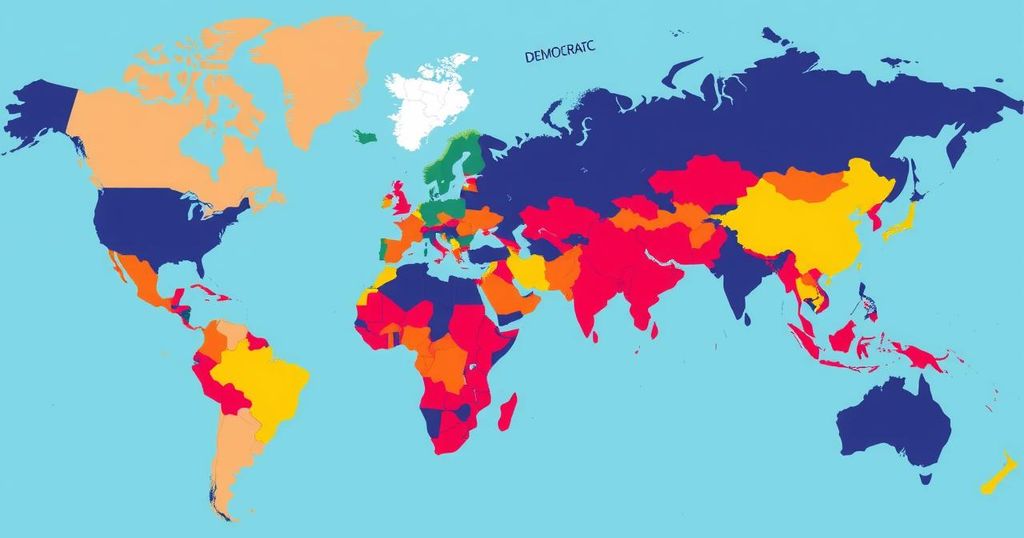Countries with ‘Democratic’ in Their Official Names: A Closer Examination
Several nations include the term “Democratic” in their official names, reflecting political aspirations. However, their political systems often contradict such ideals. Examples include the Democratic Republic of the Congo and North Korea, which illustrate significant divergences from true democratic practices. By 2017, a majority of countries were classed as democracies, highlighting varying governance experiences globally.
Numerous nations across the globe incorporate the term “Democratic” in their official titles, indicating their political ambitions or governance claims. However, the political systems and practices within these nations often diverge from the democratic ideals purported by their names. This article identifies several notable examples where the term appears in their official names.
The Democratic Republic of the Congo is a nation rich in natural resources but has endured prolonged political instability and civil conflict, hindering the establishment of genuine democratic institutions. Meanwhile, the Democratic People’s Republic of Korea, known as North Korea, operates under a totalitarian regime characterized by a stringent dynastic dictatorship, dominated by the ruling Kim family and the Workers’ Party of Korea.
The People’s Democratic Republic of Algeria transitioned from French colonial rule to independence in the 1960s. While elections are conducted, the political landscape has been criticized for authoritarian tendencies, particularly during the civil war in the 1990s and ensuing unrest. Additionally, the Democratic Socialist Republic of Sri Lanka has maintained a framework of parliamentary democracy; however, it has historically experienced ethnic conflict and civil war, impacting its democratic processes.
Other countries featuring the term “Democratic” include the Democratic Republic of Timor-Leste, the Federal Democratic Republic of Ethiopia, the Lao People’s Democratic Republic, the Federal Democratic Republic of Nepal, and the Democratic Republic of São Tomé and Príncipe. The use of the term “Democratic” in these names may serve as a symbolic representation of their aspirations towards democratic governance. Nonetheless, the political realities often suggest a divergence from these ideals.
As of late 2017, data revealed that 96 out of 167 countries with populations exceeding 500,000, representing about 57%, were categorized as democracies, while merely 21 countries, approximately 13%, were classified as autocracies. This statistic underscores the complexity of governance in nations claiming democratic ideals while experiencing varying degrees of political freedom.
In summary, while the presence of the term “Democratic” in a country’s official name suggests an intention to embody democratic ideals, the actual political conditions often reveal a wide disparity. Countries like the Democratic Republic of the Congo, North Korea, and Algeria exemplify this contradiction between name and political reality. The statistics regarding global democracies further highlight the ongoing challenges and complexities within governance worldwide.
Original Source: globalsouthworld.com




Post Comment